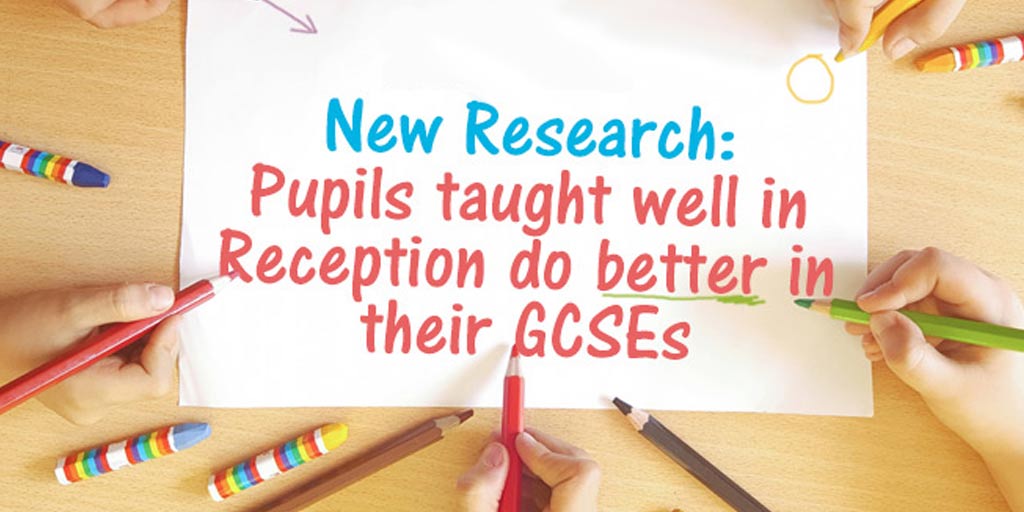Pupils taught well in Reception Class do better in their GCSEs
By Professor Christine Merrell Cambridge Insight was formerly known as the Centre for Evaluation & Monitoring (CEM). Research from academics at CEM...

Login | Support | Contact us
Lydia Cuddy-Gibbs : Sep 22, 2017 12:15:00 PM
3 min read

At last, September has arrived and the start of a new school year. As the Early Years Lead across 23 schools with Early Years settings, I’m excited about opening our doors to new reception pupils across the Ark network.
A big part of my role is to ensure that all our children are assessed carefully and accurately at every stage of their EYFS journey.
To collect data at the start and end of the reception year, schools in the Ark network have been using the BASE assessment from Cambridge Insight (formerly CEM) for the last two years.
Initially recruited to meet the government’s baseline assessment requirements, we have been pleased with the information gleaned from the smart assessment and have continued to use it even in the absence of the baseline requirement.
BASE is an online assessment which a teacher completes with each child in the class individually. Guided by loveable ‘Milly the Bug’, children point to the answers on screen or respond verbally when prompted.
In my experience, children enjoy the process and view it as a special time with their teacher. When I’ve conducted the assessment, I’ve been asked by children when they will get to see Milly again and whether they can play the ‘game’ with Milly on a different day.
The fact that the assessment can be paused at any point means that children can engage with BASE over the course of a few sessions – something we have used to the advantage of both the teacher and the pupil.
So what else do we like? BASE gives us raw data about literacy, maths and communication as soon as pupils enter reception. We run the literacy assessment in the first week of the autumn term so that we can hit the ground running with phonics teaching in week 2 - and then we assess maths.
The swift return of data means that we can quickly analyse which pupils we should prioritise for intervention and specialist support. For example, our schools use the data to order speech and language assessments accordingly. But this is only a piece in the puzzle of EYFS assessment at Ark.
We know that the very best early years assessment comes from careful observation of children at work on their own projects with their friends, as well as from deep knowledge of each child and collaboration with their families.
This takes time.
Cambridge Insight’s BASE assessment allows us to take that time to get to know children and families and notice children’s starting points once they are settled in their new surroundings.
With BASE as our raw baseline data we have the luxury of collecting reception baseline data across the first half term and moderating it. This gives us a really accurate representation of our children’s starting points.
The summer follow up assessment has helped us to analyse the impact of Ark nurseries. It’s also given us granular progress data which is especially useful for those children who do well in Early Years.
High performers who have a high baseline and continue to perform well can have their progress measured more definitively using BASE.
Yes, the assessment is an investment of time, and in some of our schools which are three-form entry the staffing to ensure efficacy of assessment is a huge undertaking.
And yes, we enjoy teaching the EYFS curriculum and would not replace teacher assessment. But despite all this, we think BASE gives us something extra.
This deliberate and additional administration of BASE alongside teacher assessment shows the dedication of our Early Years teams and the commitment of principals.
We at Ark are driven by data and want to ensure the very best for the pupils in our care. We have developed a formula to translate the BASE standardised score into one which matches the DfE scores. In the future we hope to compare outcomes of children from the early years to the end of Key Stage 1 and Key Stage 2 using these scores.
The team at Cambridge Insight are unfailingly helpful, friendly and bright. I’ve found them to be dedicated to their cause of accurate, supportive assessment that will enable teachers to give the very best education to their classes.
Looking to the future, in a climate of budget restrictions and tight staffing, will we be able to afford to continue to use BASE to support our assessment of future September starters? I hope so.
Find out more about BASE

By Professor Christine Merrell Cambridge Insight was formerly known as the Centre for Evaluation & Monitoring (CEM). Research from academics at CEM...

By Dr Pat Preedy In the 1990s, I was invited to be part of the Centre for Evaluation and Monitoring (CEM, now Cambridge Insight), the team that...

‘The first year of school is unique’ The importance of the early years in a child’s life cannot be overstated. As teachers we play our part as we...